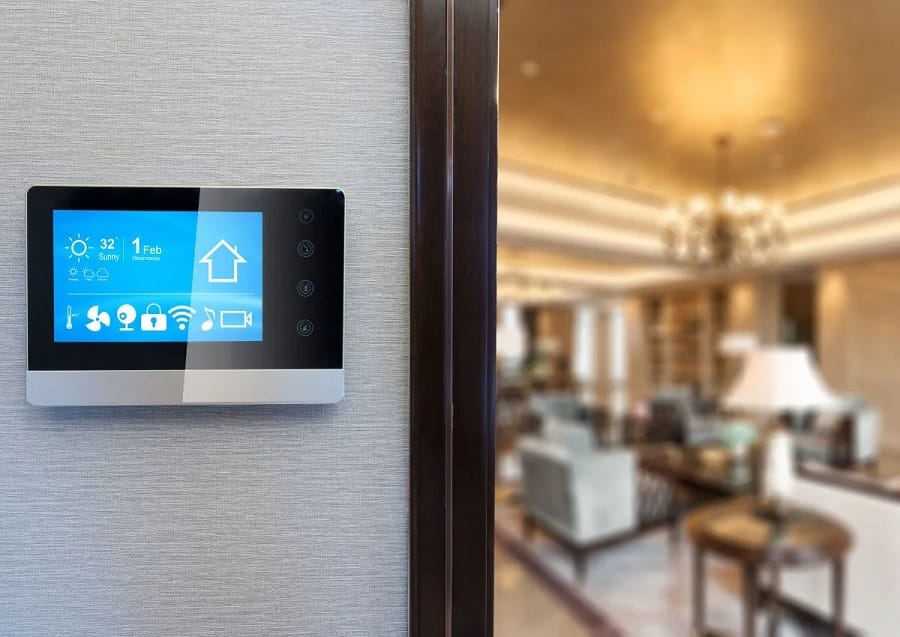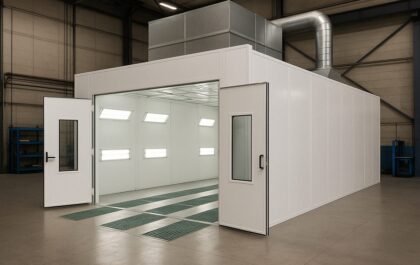Table of Contents
- The Road to Energy Efficiency
- Key Components of Modern HVAC Systems
- Benefits of Implementing Smart HVAC Solutions
- Challenges in Smart HVAC Adoption
- The Future of HVAC in Building Management
- Conclusion: Making Buildings Efficient and Sustainable
The growth of energy-efficient buildings deepens the demand for innovative HVAC systems for construction and operational efficiency. These systems manage energy consumption through various methods, lessening a building’s carbon and energy footprint. HVAC industry firms must provide these solutions to remain environmentally competitive and realize cost savings. Innovative HVAC systems and energy management solutions benefit businesses and will improve their competitiveness in this modern, energy-conscious world. Advanced technologies assist with developing targeted marketing strategies that increase customer engagement, loyalty, and market competitiveness.
Incorporating advanced technologies and innovative technologies transforms effective heating and cooling functions into an overall revolution of building management driven by climate consciousness. The dire need for innovative systems alongside more practical applications is why services that provide tailored HVAC marketing strategies have grown in demand and popularity. The importance of these advancements is underscored by the increasing demand for specialized HVAC marketing solutions, which aim to connect innovative systems with practical applications. Smart HVAC systems, utilizing IoT, AI, and advanced analytics, are enhancing efficiency, responsiveness, and adaptive climate control through advanced analytics.
This change emphasizes enhancing comfort and changing the scope of HVAC systems in building sustainability. Such systems reshape a building’s sustainability by becoming more intelligently responsive, leading to greater energy efficiency and a reduced environmental impact. They achieve optimal energy usage by responding to occupants’ predicted needs, preferences, and ecological contexts effortlessly. With the shift towards sustainable solutions, innovative HVAC systems are essential in aligning a building’s operations with the overarching environmental objectives.
The Road to Energy Efficiency
The need for a sustainable future has led to increased energy efficiency, a characteristic of modern architecture and urban design. Due to their energy consumption, innovative engineering and design techniques are being incorporated into buildings. As one of the primary energy consumers, buildings are undergoing a transformation characterized by new design and engineering techniques focused on energy use optimization. The shift towards designing energy-efficient buildings is caused by regulations, technological advancements, and global efforts to combat carbon emissions. This energy-efficient collective effort is crucial for climate change mitigation, as every action aimed at minimizing consumption is a step toward improving the environment.
Utilizing energy-efficient building technologies yields significant economic returns. These solutions drastically cut operational and utility costs, add to the value of the property, and increase market competition. Energy-efficient practices add value as they offer drastic reductions in greenhouse gas emissions, which address urgent environmental challenges while ensuring sustainable improvements for the future. Hence, energy efficiency in buildings is an investment and moral matter geared towards the current eco-friendly era.
Key Components of Modern HVAC Systems
Advanced HVAC systems now comprise smart thermostats, sensors, and IoT devices. IoT devices and more intelligent algorithms allow thorough monitoring, remote control, preemptive maintenance scheduling, and real-time diagnostics, resolving HVAC system issues before they arise. Sensors and IoT devices enable critical data and environmental condition monitoring, which aids in the optimal adjustment of surrounding factors such as occupancy detection, room temperature control, and humidity management. Smart thermostats enhance comfort, control climate based on weather data, and reduce power consumption by adapting to user habits. Optimization also occurs based on occupancy and weather data, adding further energy conservation. Effective management capabilities ensure the system runs efficiently, minimizing downtime and prolonging lifespans. These signals highlight a more dependable, innovative HVAC system that proactively enhances energy efficiency and customer comfort while reducing emissions.
Exceeding energy consumption mitigation, smart thermostats simultaneously lower costs for building occupants and owners as utility expenses decline. These basic AI programs, which are expected to be part of the systems, would allow the devices to learn and make adjustments on their own, leading to better efficiency through automatic improvements. The need for energy-efficient and sustainable buildings offers unprecedented support to businesses in the increasing demand. Modern technology, smart sensors, and AI-powered thermostats revolutionize building energy use and comfort. The fulfillment of these requirements further establishes a competitive market edge.
Benefits of Implementing Smart HVAC Solutions
Innovative HVAC systems are preferable over others for several reasons, including their ability to save costs, enhance comfort and health, and improve environmental quality. Cost reductions are not the only benefits of innovative HVAC systems; various benefits are associated with their implementation. In particular, the most notable benefit of an automated system is its ability to minimize energy consumption through optimum utilization of energy resources in buildings. Lowered energy consumption automatically reduces bills while helping mitigate the global environmental issue.
Moreover, the use of innovative HVAC systems also leads to improvement in a person’s health and comfort while simultaneously improving the quality of the environment indoors. Intelligent systems help control the temperature and the amount of moisture present. They aid in mitigating changing temperatures that may lead to health problems or any form of discomfort. Stability also fosters improvement in productivity and well-being. These systems enhance the indoor environment and provide a pleasant environment for all workers. Given all these benefits, innovative HVAC systems constitute an economically and environmentally intelligent investment for building management.
Besides offering direct financial rewards, innovative HVAC systems provide additional benefits, especially long-term savings, creating predictive maintenance, reducing the need for extensive repairs, and prolonging equipment longevity. These systems improve overall efficiency by analyzing and measuring system performance constantly, identifying potential problems, and solving them early on before they worsen. Additionally, the installation of such systems contributes to higher property equity. This is because modern buyers and renters increasingly value existing buildings’ energy efficiency and sustainability. The shift towards more sustainable practices has created an opportunity that makes the adoption of energy-efficient HVAC systems more attractive. In any case, sustainable, innovative HVAC solutions aid construction managerial staff and facility users in designing cost-effective and comfortable buildings while paving the way toward a sustainable environment.
Challenges in Smart HVAC Adoption
Shifting to innovative HVAC systems has advantages and challenges for organizations. The transition involves numerous hurdles, such as the system’s high initial cost, which can potentially deter adopters, and the additional technical difficulty that comes with maintenance and installation.
Broadening the scope of adoption began with tackling training and support gaps. We are promoting educational programs highlighting long-term financial savings, Avalon South Bay’s eco-friendly initiatives, and positive environmental impacts, all of which can help overcome initial investment resistance. Additionally, offering phased, clearly outlined milestone implementation and showcasing testimonials from other organizations can further encourage uptake. Moreover, training personnel with innovative HVAC system skills helps foster a smoother transition.
The Future of HVAC in Building Management
Looking ahead, the future of HVAC systems is set to be even more interconnected and advanced as the growth of smart home technology continues to evolve. The improvements provide the possibility of better interconnectivity with wider building management systems, thus improving control and user satisfaction. The development of machine learning and AI applications in HVAC systems is expected to make them more sophisticated in the form of self-optimizing systems capable of data-driven decision-making.
This approach will allow systems to predict changes in demand and pre-respond to weather changes, driving additional efficiency and sustained improvements. Innovative HVAC systems will change how buildings are managed by providing unmatched efficiency and sustainability. They will redefine the energy and environmental accountability and responsibility benchmark, positioning advanced HVAC systems at the forefront of innovative technologies for eco-friendly, construction-ready buildings designed for the future.
Data analytics and their immediacy apply to HVACs because they enable accurate prediction of maintenance and troubleshooting system failures. Analyzing and collecting sensor data can notify building managers well in time to avert impending costly issues. This analysis augments the repair and maintenance longevity of the system while simultaneously reducing costs. HVAC will also facilitate the personalization of climate control in a building, whereby users can set personalized preferences for specific areas or zones. All these changes will enable the creation of advanced-level automated residential and commercial infrastructure. In the long run, building owners will enjoy considerable ROI because these systems help reduce the operating cost of the property while enhancing comfort and productivity within structures. As the technologies become cheaper, smart HVAC will be integrated into buildings, turning them into a standard offering, making them accessible for commercial and residential buildings, and solidifying their place at the forefront of building management.
Conclusion: Making Buildings Efficient and Sustainable
Shifting focus towards sophisticated HVAC systems is crucial for propelling building efficiency and sustainability. Innovations integrate technologies into HVAC systems that offer multi-faceted solutions for promoting comfort, improving productivity, and reducing energy consumption and operational expenses. Such systems represent an investment in the future for building managers today and will be imperative to the architectural landscapes of sustainable buildings tomorrow.
With greater innovation and increased adoption, HVAC systems will lead to building performance optimization, sustainability, and green advancements in construction. The systems’ future potential to transform how energy is utilized in buildings will become increasingly apparent alongside evolving technologies and growing public awareness. Using these systems enables building managers to advance the development of living environments that support sustainability significantly.



